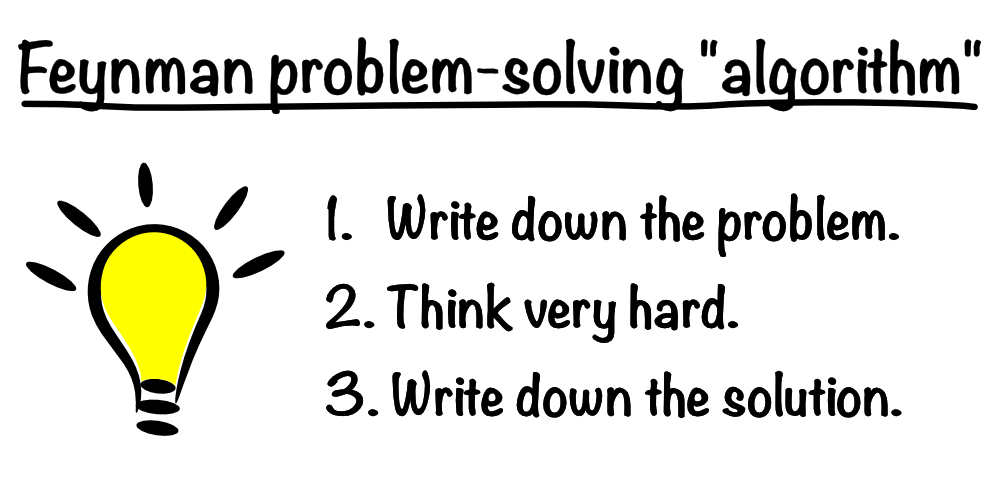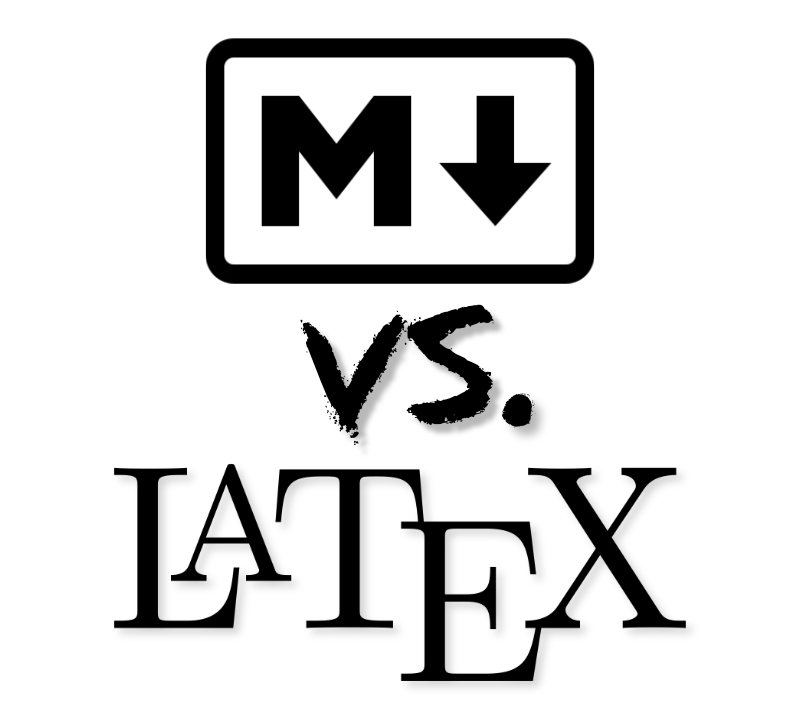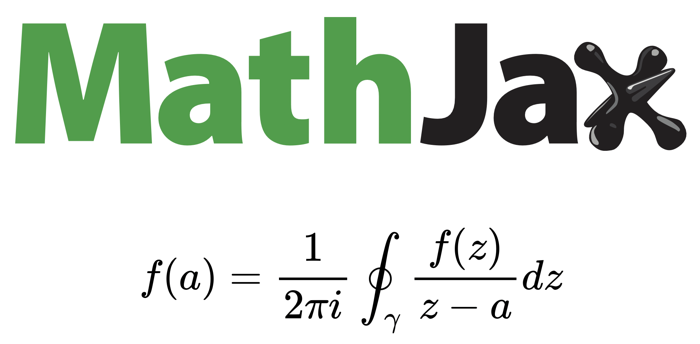The Feynman problem-solving algorithm
During the research on the article on the Feynman method, I surprisingly came across another problem-solving approach allegedlyꜛ by Richard Feynman, the so-called Feynman algorithm. This “algorithm” consists of three steps:
I couldn’t find a source that would proof Feynman’s authorship. Also, I can’t rule out that it is an alternative version of the presented Feynman method. There is definitely some overlap. However, I think it is another valuable problem-solving approach of its own. Maybe not for all sorts of problems. It seems to me to be very suitable for scientific problems like from mathematics or physics.
Even if this approach sounds obvious and simple, it still means hard work. Thinking carefully about a precise description of a problem (“Write down the problem”) is perhaps the most difficult part of the entire problem-solving process. And without any doubt, thinking very hard about a problem and its solution is what it says: hard. One approach here could be, not trying to solve all aspects of a problem at once, but to cut it into pieces and find solutions for each bit. And sometimes, there is not only one solution to a problem, the solution space can be widely spaced. We shouldn’t give up if one path seems to be a dead end (at the moment). Sometimes it is helpful to take a break, do something else, and to start from scratch the next day. And some problems can’t be completely solved at all. In such cases, the partial solutions found are also a highly valuable achievement. In any case, writing down the solution is immensely important. That forces us to formulate our thoughts correctly and to think comprehensively. It also reveals any existing gaps. And we can get back to our (partial) solutions at any time in order to continue working on them and to reuse them for other problems.








comments